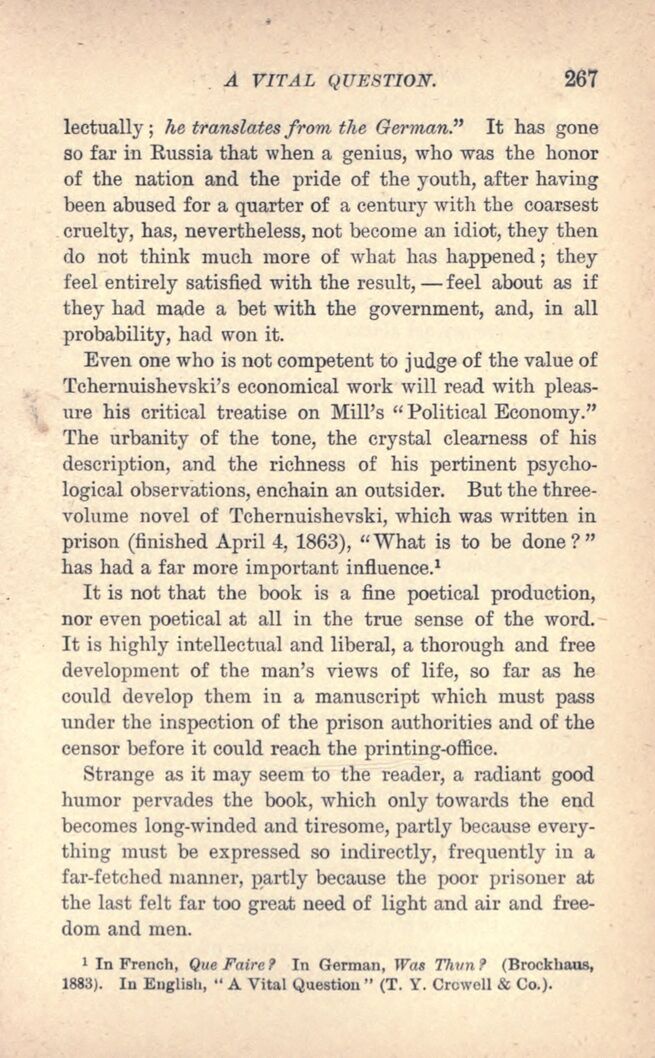
Full resolution (JPEG) - On this page / på denna sida - Impressions of Russian Literature - IV

<< prev. page << föreg. sida << >> nästa sida >> next page >>
Below is the raw OCR text
from the above scanned image.
Do you see an error? Proofread the page now!
Här nedan syns maskintolkade texten från faksimilbilden ovan.
Ser du något fel? Korrekturläs sidan nu!
This page has been proofread at least once.
(diff)
(history)
Denna sida har korrekturlästs minst en gång.
(skillnad)
(historik)
intellectually; he translates from the German.” It has gone
so far in Russia that when a genius, who was the honor
of the nation and the pride of the youth, after having
been abused for a quarter of a century with the coarsest
cruelty, has, nevertheless, not become an idiot, they then
do not think much more of what has happened; they
feel entirely satisfied with the result, — feel about as if
they had made a bet with the government, and, in all
probability, had won it.
Even one who is not competent to judge of the value of
Tchernuishevski’s economical work will read with
pleasure his critical treatise on Mill’s “Political Economy.”
The urbanity of the tone, the crystal clearness of his
description, and the richness of his pertinent psychological
observations, enchain an outsider. But the three-volume
novel of Tchernuishevski, which was written in
prison (finished April 4, 1863), “What is to be done?”
has had a far more important influence.[1]
It is not that the book is a fine poetical production,
nor even poetical at all in the true sense of the word.
It is highly intellectual and liberal, a thorough and free
development of the man’s views of life, so far as he
could develop them in a manuscript which must pass
under the inspection of the prison authorities and of the
censor before it could reach the printing-office.
Strange as it may seem to the reader, a radiant good
humor pervades the book, which only towards the end
becomes long-winded and tiresome, partly because
everything must be expressed so indirectly, frequently in a
far-fetched manner, partly because the poor prisoner at
the last felt far too great need of light and air and
freedom and men.
<< prev. page << föreg. sida << >> nästa sida >> next page >>